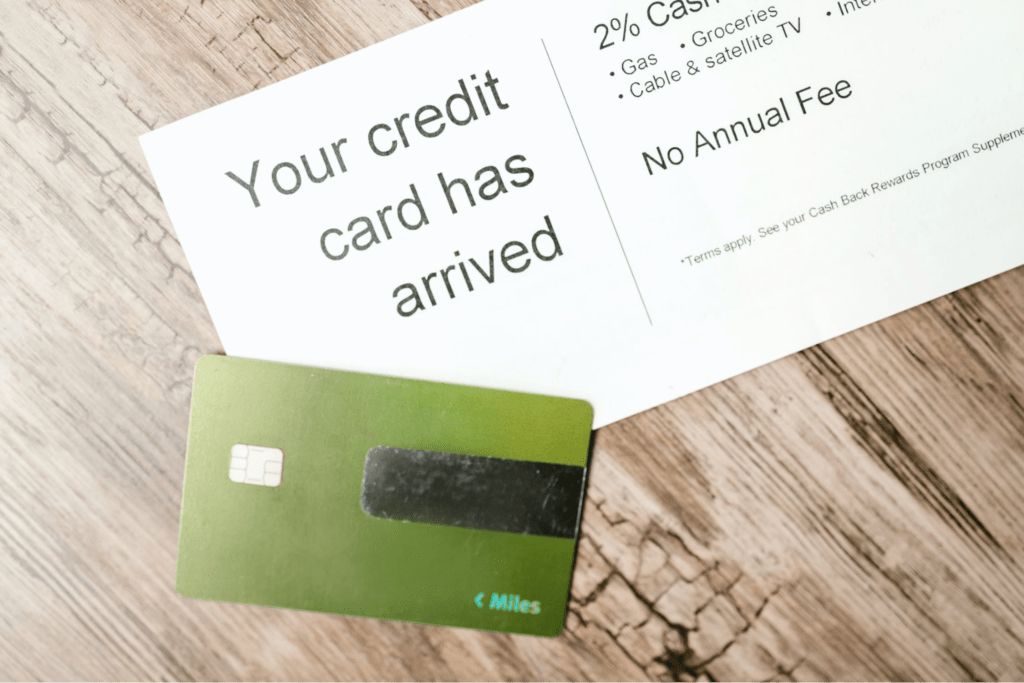Explained—Can You Get a Credit Card at 16?

Start Building Your
Child’s Credit
According to the Federal Reserve’s research, 84% of adult Americans have credit cards, with 73% taking them out by age 25. This makes credit cards the most popular financial product among young adults.
If you’re approaching adulthood, you may want to join the crowd and get a head start by taking out a credit card early. To show you if this is possible, this guide will answer a common question among teens—can you get a credit card at 16? You’ll learn about your options and credit card requirements, as well as some ways to get around the limitations you may face.
Can 16-Year-Olds Get Credit Cards?
Regardless of their age, minors are legally prohibited from owning a credit card solely in their name. You must be at least 18 to apply for one, or older if the legal threshold in your state is higher. Even then, you might have to meet additional requirements before a bank is willing to issue you a card.
This is because of the strict regulations imposed by the CARD Act of 2009. The Act doesn’t allow anyone under 21 to own a credit card unless they can make repayments independently. You must prove that you have a stable income allowing you to meet your obligations to the lender.
If you don’t meet this requirement, you need a co-signer over 21 who will share ownership of the account with you. The problem is that most banks don’t offer co-signers on credit cards, so you most likely won’t qualify for a card before reaching legal age and having a stable job. This goes for all traditional credit cards, so you’ll have to wait at least a couple more years to get one.
Can You Get a Secured Credit Card at 16?

Source: RODNAE Productions
Secured credit cards work similarly to the more common unsecured credit card options, except they’re easier to obtain. You pay a deposit that typically serves as your credit limit, so the lender doesn’t face as big of a risk of non-payment. That’s why some young adults start with secured cards before obtaining an unsecured one.
Unfortunately, this option isn’t accessible to minors either. You must be of legal age in your state to apply for a secured card, so 16-year-olds can’t own one.
With all of the above in mind, we can conclude that you can’t get any credit card at 16 independently. The primary way for a minor to gain access to a credit card is by becoming an authorized user of an adult’s card.
How Can Someone Add You to Their Credit Card?
Until you’re eligible for a credit card in your name, a parent or legal guardian can add you to theirs as an authorized user. You’ll get access to their credit account and most likely get a separate card connected to it. This way, you can use credit funds as if you owned the account.
Becoming an authorized user is straightforward—all your parent has to do is contact their bank and request to add you. The bank will need your personal information, such as:
- Full name
- Address
- Social Security number (SSN)
Depending on the bank, you’ll either have full access to the credit card or your parent will set a limit. All funds you use will need to be repaid, so you and your parent can decide how you’ll make payments.
Downsides of Credit Card Authorization
While being an authorized user seems convenient, some parents are hesitant to add their children because of the risks associated with doing so. Many are afraid their children will overspend and use the card without their permission, which can lead to significant debt.
Only the primary holder is responsible for the debt, so your parent might be hesitant to expose themselves to such risks unless you have sufficient financial knowledge and show responsibility.
Another downside affecting both card users relates to credit building. While you don’t need a credit check to be an authorized user, you’ll need one to get an independent credit card and other loans. Good credit can help you get loans on favorable terms and affect other areas of your life, like renting an apartment or getting a job.
Being an authorized user isn’t the best way to build credit for several reasons:
- Some banks don’t report authorized users’ activity to the credit bureau
- You inherit your parent’s credit history, which can be a problem if they have a history of defaults or other issues
- Your credit profile is connected to your parent’s, so poor credit behavior on any user’s part can hurt both scores
- When your parent removes you from their card, your credit history associated with it gets deleted from your profile, so you need to start over
Credit Card Alternatives for Teens

Source: Andrea Piacquadio
If you only need a credit card to avoid cash and enjoy more independence, you have two primary alternatives:
- Checking accounts with debit cards
- Prepaid cards
A checking account lets you receive money from your parents, employers, and anyone else. You’ll get a debit card connected to it, which you can use for payments, withdrawals, and other uses.
You don’t need to be a legal adult to get a checking account, but you may need a parent or legal guardian present to open it. Most banks also require the parent to be a co-signer, so you’ll have a joint account until you’re old enough for your own.
Unlike debit cards, prepaid cards aren’t connected to a bank account. Your parent loads it with funds, and you can use the card as a standard debit option. You may not be able to receive payments from third parties unless the card issuer allows it.
Debit and prepaid cards are solid options to get you started using purchasing cards—you’re learning how to manage spending with a card using your own funds, not borrowed. The main downside is that such cards don’t help you build credit, as your use of them isn’t reported to the credit bureau.
So far, minors’ options for building credit have been limited to ineffective methods like being authorized users on an adult’s card. Luckily, parents now have a better way of supporting their children’s financial independence—FreeKick.
Avoid Credit Card Restrictions With FreeKick
Getting a credit card as a teenager comes with many challenges. If you’re looking for an easier way to build credit early on in life, consider FreeKick by Austin Capital Bank. FreeKick is an FDIC-insured deposit account that offers two services—credit building and identity protection.
Using FreeKick to Build Credit
You can use FreeKick’s credit building service if you’re between 13 and 25 years of age. Ask your parents to take the following three steps:
- Create an Account—Sign up on FreeKick.bank and choose a deposit that suits your parents’ budget
- Set It and Forget It—FreeKick will start building 12 months’ worth of credit history for you and your siblings
- Keep Growing—After 12 months, your parents can either close the account without any fees or continue building credit for you for another year
As a result of these three steps, you can get up to five years of credit head start when you turn 18. This will help you save $200,000 during your lifetime because you’ll be able to secure loans with more favorable terms.
Using FreeKick to Protect Identity
A child’s identity is stolen every 30 seconds. If you fall victim to this crime, your credit building efforts may go to waste because identity criminals may use your identity to take out loans and commit crimes, damaging your credit. To avoid this scenario, FreeKick offers the following identity protection services for minors:
- Credit profile monitoring
- Social Security number (SSN) monitoring
- Dark web monitoring for children’s personal information
- Up to $1 million identity theft insurance
- Full-service white-glove concierge credit restoration
- Sex offender monitoring—based on sponsor parent’s address
Your parents can also benefit from FreeKick’s identity protection services. Here’s what adult children and parents get:
- Credit profile monitoring
- SSN monitoring
- Dark web monitoring for personal information
- Up to $1 million identity theft insurance
- Full-service white-glove concierge credit restoration
- Lost wallet protection
- Court records monitoring
- Change of address monitoring
- Non-credit (Payday) loan monitoring
- Free FICO® Score monthly
- FICO® Score factors
- Experian credit report monthly
FreeKick Pricing
FreeKick offers two pricing plans:
| FDIC-Insured Deposit | Annual Fee |
| $3,000 | $0 (Free) |
| No deposit | $149 |
Both plans offer the following:
- Credit building for six children aged 13 to 25
- Identity protection for two parents and six children aged 0 to 25
Kickstart your credit profile with ease and secure your identity—sign up for FreeKick today.
Featured image source: Kindel Media